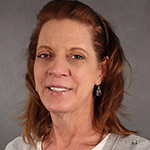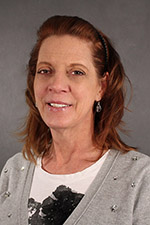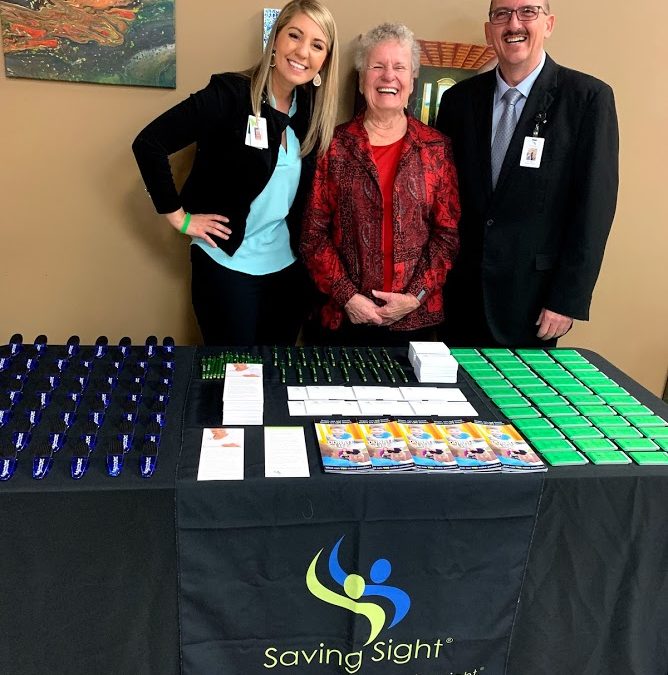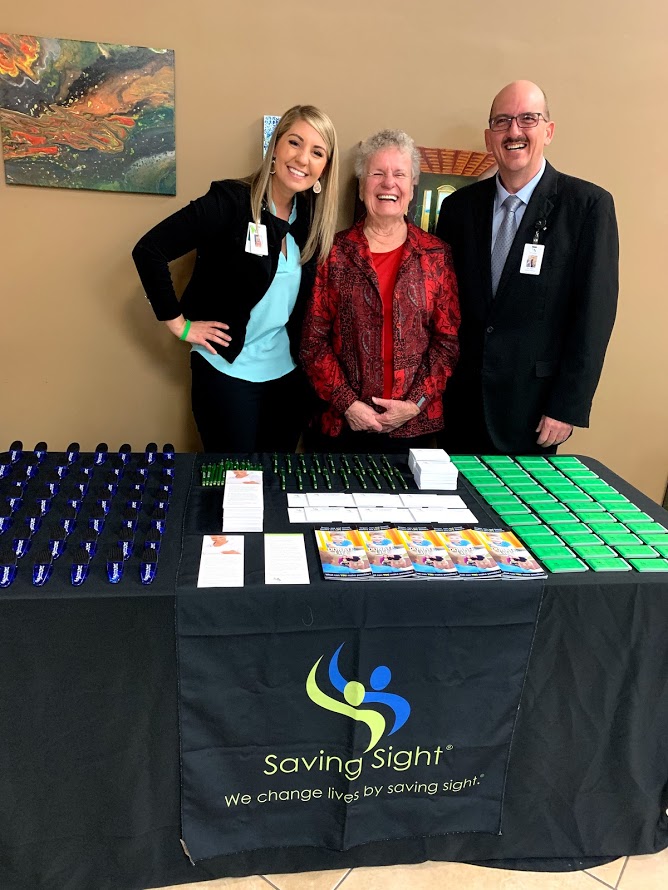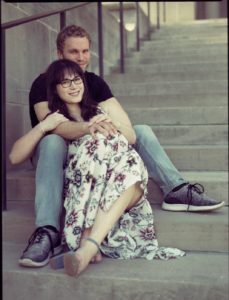
One Couple Shares Their Unique Connection to Eye Donation
 Julie and Chris have a unique connection to corneal transplantation. Chris as a corneal tissue recipient and Julie as a tissue recovery technician for the Saving Sight eye bank.
Julie and Chris have a unique connection to corneal transplantation. Chris as a corneal tissue recipient and Julie as a tissue recovery technician for the Saving Sight eye bank.
“In late July 2016, I had a corneal abrasion on my right eye that sealed to form an ulcer covering my entire cornea,” says Chris. “My ophthalmologist put me on a regiment of fortified Vancomycin and Tobramycin to be taken every hour for two weeks. After two weeks of unrelenting agony and exhaustion, the ulcer had not decreased in size, and it was determined that a transplant had to occur.”
On August 5, Dr. Fraunfelder performed a cornea transplant in Chris’s right eye. “Though there was immediate relief from any pain, it took about two weeks for my eye to be able to be reopened. Since then, I’ve had to have a fitted solid contact lens, and have to take a steroid eye drop every day, but my vision has returned to normal. I’m extremely thankful for the team at University Hospital who helped me through this process and extremely thankful for Dr. Fraunfelder for performing the surgery.”
Chris says his surgery experience was a typical outpatient procedure. “Having the stitches removed a year later was more stressful, and even that was easy,” he says.
“It’s nice not having to wake up every hour on the hour in agony to squirt drugs in my eye. I was essentially bed-ridden during this time, unable to go to work, and underneath quite a bit of stress due to feeling completely shut out,” says Chris.
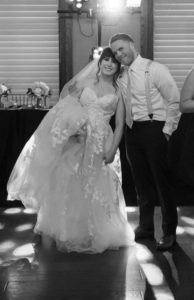
Julie and Chris on their wedding day.
Chris and his wife Julie are both advocates for organ, eye and tissue donation. “Without this surgery, I’m not sure how my quality of life would be,” says Chris. “As a freshman, I worked with an on-campus organ donation group called Donate Life, raising money and awareness for organ donation. Though I’ve always been an organ donor, this put into perspective exactly how important it is that people are in favor of donating.”
“While working as a recovery technician, I’ve discovered a large part of the public are anti-donation or just not registered donors due to common misconceptions, while many people wait for the opportunity to receive a donation that will drastically change their lives,” adds Julie. “I have always been very pro-donation, but had no personal association before Chris’s transplant.”
Julie has been a recovery technician with Saving Sight since this summer. She applied because she enjoyed the uniqueness of the job and wanted to use her medical experience to make a positive impact in her society/community.
“Each case is so unique; it keeps me growing as an individual and professional continually,” she says. “Being able to make such a difference in people’s lives is fulfilling, but the community that is Saving Sight was so unexpected and has meant so much. I love getting to spend time with my coworkers.”
Chris and Julie are thankful to the many individuals who have chosen to give the gift of sight. “It is very respectful of the donor and their loved ones and can not only save a life but comfort the donor’s loved ones.”
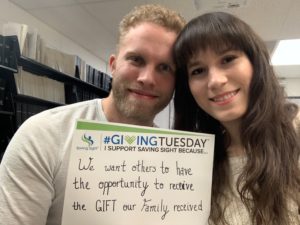
Chris and Julie with their #GivingTuesday #UnSelfie sign.

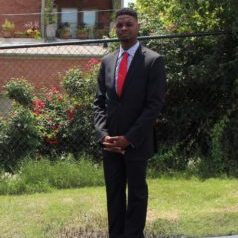
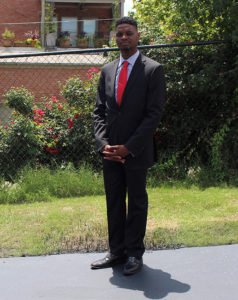 “Since I had my cornea transplant my experience has been filled with joy because, for the first time, I do not feel like there’s anything that can hold me back. I feel like I can literally do anything without worrying about my sight,” says Casey. Casey is currently a dual major student and is studying Criminal Justice and Psychology with credentials in International Conflict and Child/Adolescence Development. When Casey was fifteen years old he developed a cataract on his left eye. Without cataract surgery, doctors said he would go blind in that eye. “However doctors did not know whether the surgery would restore my sight,” said Casey. “I had the surgery and waited a few months to see if my sight would be restored.
“Since I had my cornea transplant my experience has been filled with joy because, for the first time, I do not feel like there’s anything that can hold me back. I feel like I can literally do anything without worrying about my sight,” says Casey. Casey is currently a dual major student and is studying Criminal Justice and Psychology with credentials in International Conflict and Child/Adolescence Development. When Casey was fifteen years old he developed a cataract on his left eye. Without cataract surgery, doctors said he would go blind in that eye. “However doctors did not know whether the surgery would restore my sight,” said Casey. “I had the surgery and waited a few months to see if my sight would be restored.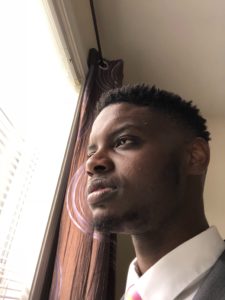 “I have learned a lot during this long process. I learned that there are hundreds of people like me out there who need a second chance at living. I know as a recipient I have the power to spread my message to people.
“I have learned a lot during this long process. I learned that there are hundreds of people like me out there who need a second chance at living. I know as a recipient I have the power to spread my message to people.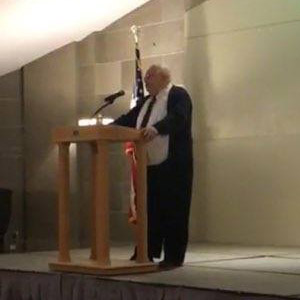
 April was National Donate Life month and Saving Sight took part in numerous celebrations in Missouri, Kansas and Illinois to help spread awareness about the impact of organ, eye and tissue donation.
April was National Donate Life month and Saving Sight took part in numerous celebrations in Missouri, Kansas and Illinois to help spread awareness about the impact of organ, eye and tissue donation.